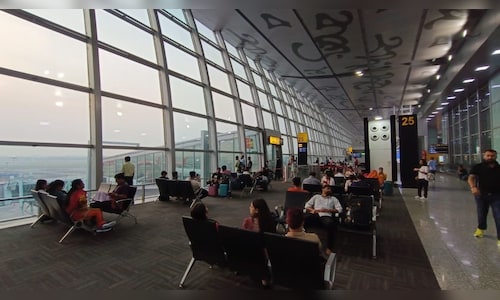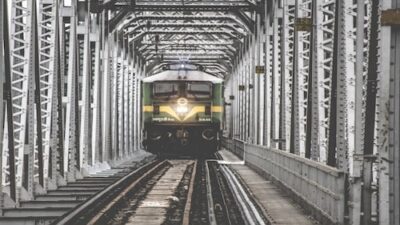In a detailed conversation with CNBC-TV18, Wilson discussed the airline’s operational and strategic transformation under Tata Group’s leadership, noting that rising costs in the aviation industry, particularly those transferred to travelers via regulated airport fees, could slightly diminish passenger demand. The UDF, an additional charge included in air ticket prices, is collected by airport operators to support infrastructure development and maintenance.
“Any increase in travel costs naturally implies a possibility of reduced travel volumes,” Wilson remarked, referring to the fee hike. He acknowledged that while the fee revision process is regulated and that airlines, including Air India, are part of the discussions, this does not guarantee a unanimous outcome. “We were consulted on the regulation of user charges, although we might not agree with the final decision.”
Globally, airlines operate on narrow profit margins, and in India, this challenge is exacerbated by escalating infrastructure costs, fluctuating fuel prices, and competitive fare models. Wilson clarified that while airlines attempt to absorb specific cost increases, a significant portion of the burden from UDF hikes is generally passed on to passengers.
“Most of the increased costs are transferred to the consumer, who will ultimately decide if they find that expense acceptable,” he stated. “The higher the costs, the more it will influence people’s decision on whether to fly or not.”
Despite his measured comments, Wilson’s statement underscores a broader worry within the aviation sector — that persistent increases in airport and regulatory fees could restrain passenger growth in a price-sensitive market like India. Currently, India stands as the third-largest domestic aviation market in the world, with annual growth rates hovering around 8–10%, though its air travel penetration is still considerably lower than that of developed markets.
Wilson stressed the importance of not pricing air travel out of reach for first-time and budget-conscious travelers. “We need to concentrate, as a nation, industry, and company, on making travel as accessible and economical as possible,” he remarked.
He further highlighted the economic multiplier effect of air travel, which bolsters various sectors such as tourism, hospitality, logistics, and business travel. “Air travel serves as a catalyst for a myriad of industries. It generates employment, whether directly within our airline or through broader business connectivity. The entire support infrastructure surrounding aviation thrives on scale driven by customer flows,” he explained.
Industry analysts share Wilson’s concerns, noting that any uptick in the overall cost of flying — be it through taxes, surcharges, or UDF — risks suppressing demand, especially in times of economic uncertainty or geopolitical tensions. While premium travelers may absorb such increases, cost-sensitive domestic and leisure travelers may postpone their travel plans or opt for alternative modes of transport.
While Wilson did not disclose the specifics regarding the UDF increase or the airports most affected, his remarks arrive amid a period when several major airports, including Delhi, Mumbai, and Bengaluru, have either enacted or are awaiting regulatory approval for adjusted fee structures aimed at financing expansion and upgrades.
Despite these challenges, Wilson voiced ongoing optimism about India’s long-term aviation landscape. He reaffirmed Air India’s commitment to broadening access to affordable travel, while simultaneously investing in fleet, personnel, and enhancing customer experience. Nonetheless, he emphasized that ensuring air travel remains affordable necessitates a collaborative effort from airlines, airport operators, regulators, and policymakers alike.
As Air India navigates its five-year transformation journey under the Vihaan.AI strategy, cost control — including advocacy for rational fee structures — will be pivotal to its objective of becoming a competitive, world-class airline with strong Indian roots.



